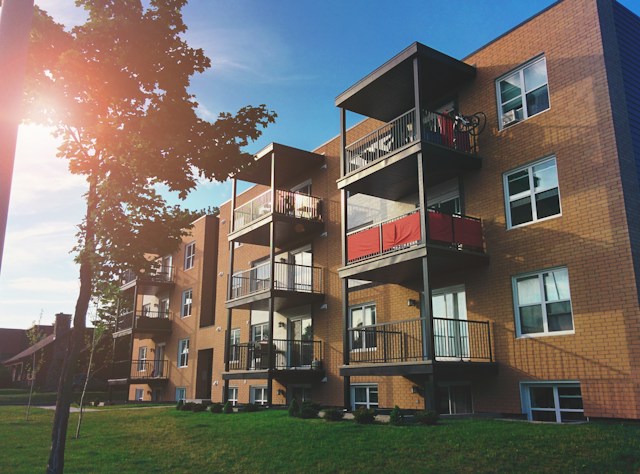What Is a Second Mortgage?
As a homeowner, you’ve probably heard the term “second mortgage.” But what is a second mortgage, and how does it fit into your financial needs? At PropertyChat, we’re here to unpack this concept and help you understand how it works.
What Exactly is a Second Mortgage?
A second mortgage, in nature, is a loan that lets you borrow against the value of your home. Your home is an asset, and over time, that asset can gain value. Second mortgages are called such because they have secondary priority to your first mortgage. In the event of default, the first mortgage is paid off before any funds are directed towards the second.
Unveiling the Types of Second Mortgages
Homeowners have two options when it comes to second mortgages – Home Equity Loans and Home Equity Lines of Credit (HELOC). The former provides a lump sum of cash that you pay back through regular installments, just like your first home loan. Conversely, a HELOC works more like a credit card, allowing you to borrow up to a certain limit as needed.
Weighing the Pros and Cons: An In-depth Look into the Benefits and Drawbacks of a Second Mortgage
The decision to take a second mortgage shouldn’t be taken lightly. This option can have both a positive and negative impact on your financial health. It’s therefore crucial to consider all facets before proceeding.
Upsides of a Second Mortgage
A second mortgage could provide a lifeline for those who need a significant amount of money for various situations, such as major home improvements, business investments, or consolidating high-interest debts. Let’s explore some of the reasons why people opt for a second mortgage.
- Lower Interest Rates: Compared to other forms of borrowing like credit cards and personal loans, second mortgages tend to have lower interest rates. This difference can save you a considerable amount of money over the term of the loan.
- Higher Loan Amounts: The loan amount for a second mortgage is typically based on the equity in your home. If you’ve been living in your house for some time and have been consistent with your mortgage payments, you’ve probably built up a substantial amount of equity. As a result, you may qualify for a larger loan amount with a second mortgage than with other types of loans.
- Potential Tax Benefits: In some cases, the interest paid on a second mortgage could be tax-deductible. However, tax laws are complex, so be sure to consult a tax advisor to understand the potential tax benefits fully.
Downsides of a Second Mortgage
Despite the advantages, there are risks associated with second mortgages that you should consider. Here are some potential drawbacks:
- Risk of Foreclosure: This is one of the most significant risks associated with second mortgages. If you’re unable to make your mortgage payments, the lender could potentially foreclose on your home. Therefore, it’s essential to have a secure plan for the repayment of the loan.
- Additional Costs: When you apply for a second mortgage, you’ll likely incur various fees, including application fees, appraisal fees, and closing costs. These can add to the overall cost of borrowing and should be factored into your decision.
- Variable Interest Rates: Many home equity loans come with a variable interest rate. This means that your payments could increase if the rates go up. If you’re considering a home equity loan, make sure to understand the terms of your loan agreement and how much your payments could change over time.
In conclusion, a second mortgage can be a beneficial tool for homeowners needing to borrow a large sum of money. However, it’s also a complex financial product that carries significant risks. As you navigate this decision, make sure to consult with financial professionals and leverage resources like PropertyChat to ensure you’re making the best decision for your financial future.
Navigating the Application Process: Qualifying and Applying for a Second Mortgage
Getting a second mortgage involves meeting certain lending criteria. Lenders, be it banks or mortgage brokers, will review your credit score, debt-to-income ratio, and the equity in your home. During the application process, you’ll need to submit various details, including proof of income, credit history, and an appraisal of your property’s market value.
Crunching the Numbers: How to Calculate a Second Mortgage with an Example
One of the most important things to understand when considering a second mortgage is how much you can borrow. This amount typically depends on the equity you’ve built up in your home. Equity is the difference between the market value of your house and the outstanding balance of your first mortgage.
Let’s illustrate this with an example:
Say your home’s current market value is $500,000, and you have $300,000 left to repay on your original mortgage loan. This means you have $200,000 in equity ($500,000 – $300,000 = $200,000).
Typically, lenders will allow you to borrow up to 85% of your home’s appraised value, less the amount you owe on your primary mortgage.
So, 85% of your home’s value is $425,000 ($500,000 x 85% = $425,000).
To calculate the maximum amount you could borrow on a second mortgage, you would subtract your primary loan’s outstanding balance from this amount: $425,000 – $300,000 = $125,000. Therefore, in this scenario, you could potentially qualify for a second mortgage of up to $125,000.
Remember that while this formula provides a basic guide, other factors also affect the amount you can borrow, including your credit score, income, and overall financial health. Always consult with your lender or a financial advisor before deciding to proceed with a second mortgage.
Tweaking the Terms: Refinancing and Paying Off a Second Mortgage
Refinancing a second mortgage involves replacing your current loan with a new one. This decision is typically influenced by changes in interest rates or a borrower’s financial situation. Paying off a second mortgage can be done through various ways, such as making extra payments or applying a lump sum, depending on the borrower’s finances.
Unlock Confidence in Your Second Mortgage Journey
Navigating the complexities of a second mortgage can feel overwhelming. But with the right guidance, you can move forward with clarity and confidence. Our dedicated team at PropertyChat is here to provide the expertise you need.
📞 Connect with a PropertyChat Specialist
Gain insights, have your questions answered, and ensure that every decision aligns with your financial aspirations.
Schedule Your Expert Call Today
Frequently Asked Questions: Second Mortgages
With the complex nature of second mortgages, it’s understandable to have questions. We’ve addressed some of the common queries about second mortgages below:
What is a second mortgage?
A second mortgage is an additional loan you take out using your home as collateral while you’re still paying off your primary mortgage. It allows you to access the equity, or the value of your home minus what you still owe on your first mortgage, for major expenses. This type of loan has a lower priority than your initial mortgage in case of default and sale of the property.
How does a second mortgage work?
A second mortgage works by letting homeowners borrow money using the equity they’ve built up in their homes. This loan comes as either a lump sum or a line of credit. Borrowers must make regular repayments to cover the loan amount and the interest accrued, similar to the first mortgage.
What are the benefits of a second mortgage?
A second mortgage can provide substantial funds at lower interest rates than credit cards or personal loans, making it suitable for large expenses like home renovations or education costs. Second mortgages also allow homeowners to avoid paying private mortgage insurance, and in some cases, the interest may be tax-deductible. It’s an effective way to leverage the investment made on a property.
What are the drawbacks of a second mortgage?
While a second mortgage can be financially advantageous, it comes with potential downsides. The risk of foreclosure increases as failure to repay the loan could lead to loss of the property. There are also additional costs like application fees, annual fees, and potential prepayment penalties to consider. Lastly, the interest rates on second mortgages are usually higher than those on the first.
How much can you borrow with a second mortgage?
The amount you can borrow with a second mortgage largely depends on the equity you’ve built in your home. Typically, you can borrow up to 85% of your home’s appraised value, minus what you owe on your first mortgage. However, your credit score, income, and other financial factors will also influence the final loan amount.



